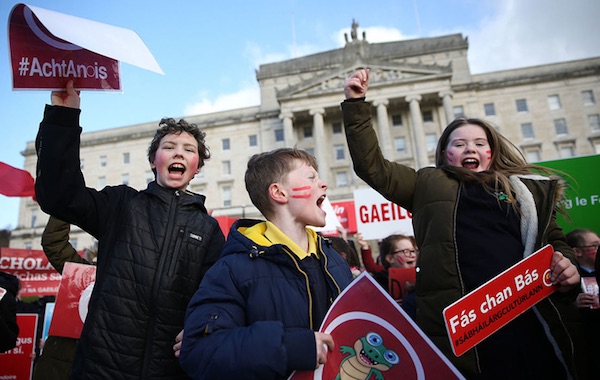
Fifty years on from the launch of the civil rights movement, nationalists are contining to battle for equality in the face of systematic and opportunistic discrimination.
This year marks the 50th anniversary of the famous civil rights marches from Coalisland to Dungannon and at Duke Street in Derry city. Images of the RUC beating protestors at Duke Street were broadcast around the world by the international media.
But while nationalist politicians have been bickering over who should get credit for the civil rights movement, it emerged this week that Catholics are still almost 50% more likely to be unemployed as Protestants. The latest annual figures released by the Stormont administration this week showed that the inequality gap is actually widening.
In sports, nationalist teams are currently prevented from playing at a publicly owned sports pitch in North Belfast due to a loyalist threat. And there was international disbelief when a local council announced this week that it had blocked the flying of Irish flags at a public St Patrick’s Day celebration.
Derry City and Strabane District Council said that as it had provided some funding, it would insist no flags be used at the St Patrick’s Day event. The council’s move has left it open to accusations of anti-Irish discrimination, as it has never previously objected to the use of the British flag at loyalist events.
Independent republican councillor Paul Gallagher said the changes were a result of a mistaken “interpretation of legislation” by councillors Sinn Fein is to seek to reverse the decision.
Meanwhile, pupils from Irish-medium schools across the north have been forced to protest at Stormont parliament buildings over the discrimination that Irish language speakers face on a daily basis.
Katy-Rose Meade, an A-level student from Colaiste Feirste secondary school in Belfast, addressed the rally on the steps of Parliament Buildings.
“The community has organised and mobilised for over 12 months, and will continue to do so until our rights are delivered, as was promised more than 12 years ago (in the St Andrews Agreement),” she said.
“I was six when that promise was made and during my lifetime I have witnessed obstacle after obstacle placed before the growth of our community-led revival.
“That community has had enough. Nothing other than a stand-alone rights-based Irish-language Act, as is afforded to other minority language communities on these islands, will do,” Katy-Rose added.
![[Irish Republican News]](https://republican-news.org/graphics/title_gifs/rn.gif)
![[Irish Republican News]](https://republican-news.org/graphics/title_gifs/harp.gif)

